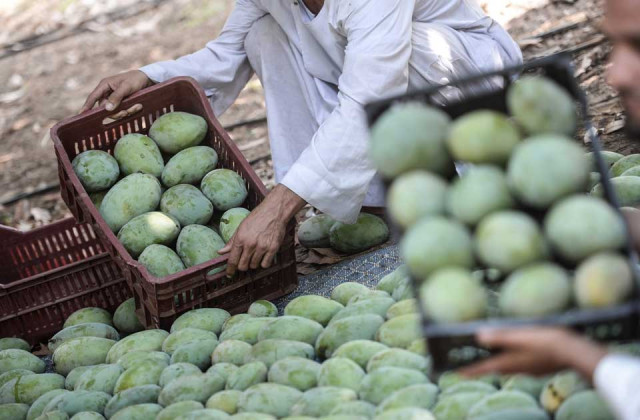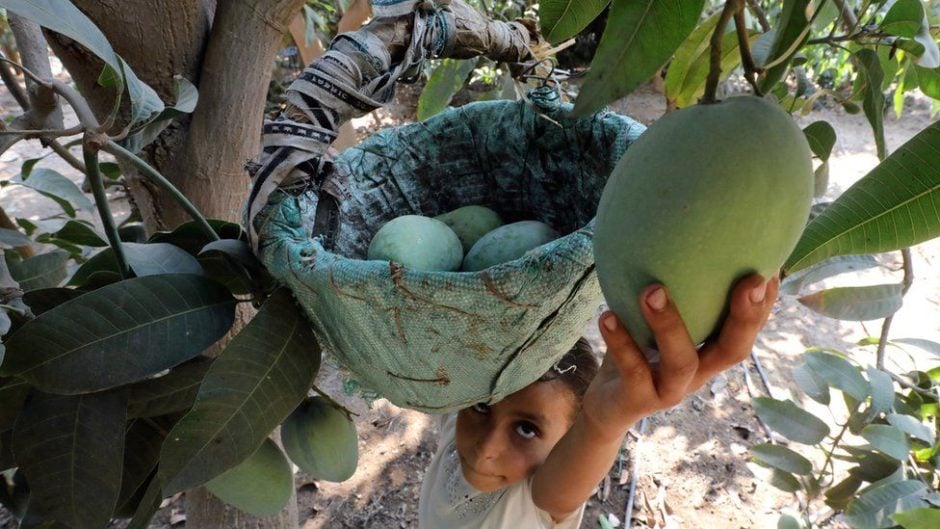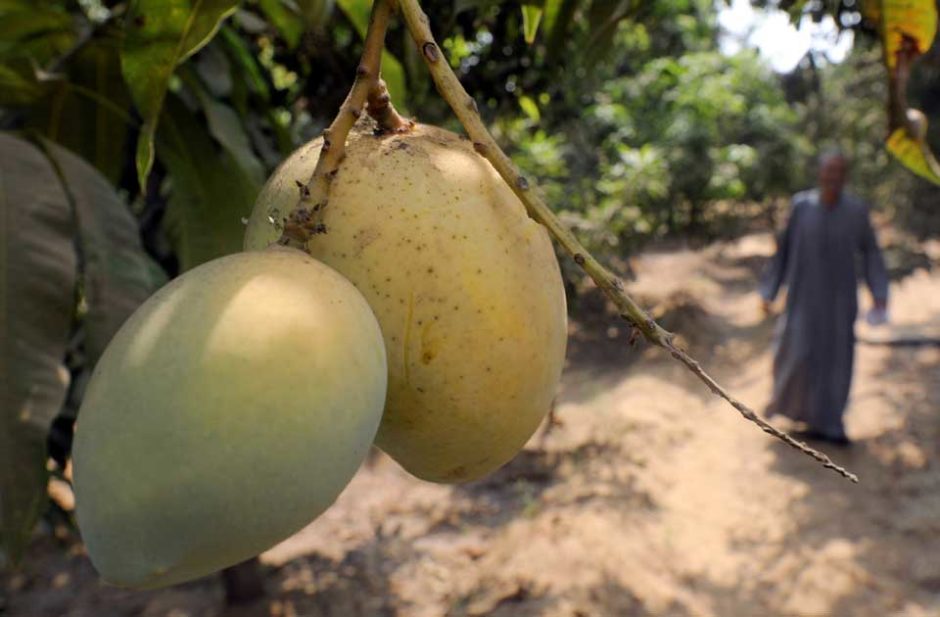Climate change may push down Pakistan's mango output
Production likely to fall 30%, but exports are expected to increase

Pakistan had the seventh position in the list of countries most affected by global warming. PHOTO: AFP
“Global warming is the major reason behind this fall in production,” said Waheed Ahmad, Patron-in-Chief of the All Pakistan Fruit and Vegetable Exporters, Importers and Merchants Association (PFVA). “Heavy rains and hailstorms caused the decrease in output.”
In 2019, mango production was expected to stand at 1.2 million tons compared with 1.8 million tons in the previous year, he said.
“This year, mango production is feared to go down 30% compared to last year,” he said, adding that Punjab was going to record a 35% decrease in production whereas Sindh was going to witness a 10% decline.
“The climate is showing a paradoxical situation as it remains hot during the day while at night it becomes very mild or cold; this fluctuation in temperature is not suitable for the mango crop,” he said.
Pakistan had the seventh position in the list of countries most affected by global warming, Ahmad recalled, adding, unfortunately, farmers were using the same 70-year-old techniques to deal with the change in weather.
Owing to global warming, the weather calendar was also changing, therefore, Pakistan needed to act accordingly, he said. For instance, there are techniques to save the crop from a hailstorm, but Pakistani farmers are not aware of these.
Agricultural practices were changing around the world, but there was nobody to educate the farmers in Pakistan about them, Waheed said. “We need to spread awareness among our growers to protect their crops from rains, storm, etc. This situation can lead to the food security challenge, which subsequently can turn into a national security issue,” he said.
 A girl picks a mango in this AFP file photo.
A girl picks a mango in this AFP file photo.Moreover, Pakistan is a water-stressed nation. The country’s 80% of water is used in the agriculture sector. Farmers rely on the flood irrigation system, which is ineffective, which is why Pakistan needs to introduce the drip irrigation system, which will help save 50% water.
The old technique is not only ineffective in dealing with climate change, but it also increases the cost of doing business, according to the PFVA chief. This turns Pakistan’s exporters uncompetitive in the international market.
“If we don’t wake up to deal with this situation, food security concerns will emerge by 2022,” he cautioned, adding “we need intense research and development in the agriculture sector to increase productivity and reduce the cost of doing business.”
“We see tomatoes being sold for Rs40 per kg one day and for Rs200 the other day; this happens due to the inefficient supply chain.”
Mango is one of the cash crops, which earns foreign exchange for the country. This year’s mango export is going to commence on May 20.
“The target is to export 100,000 tons of mangoes (this year), which will fetch foreign exchange worth $80 million,” Waheed said.
This season, the production may go down, but exports were going to increase by 25,000 tons, he said. “Last year, the exporters of mangoes sold 75,000 tons to foreign markets and for this purpose, we are going to hold roadshows in Europe, the US, and China,” he revealed.
“We are ambitious that we will be able to meet the target, however, we will need help from relevant departments like the ANF, Customs, quarantine and shipping companies to meet our target,” Waheed said.
“We sincerely hope that the law and order situation of the country will stay stable; there will not be any strike or other political instability, which can hinder exports of any crop.”
 Mangoes. PHOTO: AFP
Mangoes. PHOTO: AFPThe depreciation of the rupee against the dollar has also had its impact on the export business, he said. The lower value of the rupee has resulted in higher prices of petroleum products, which subsequently have become a reason for the higher prices of domestic transport and logistics.
The rupee’s free fall has caused an increase in sea and air transport fares, which further affects Pakistan’s exports. Pakistan ships 15% of its mango through the air and 15% through the land, while the rest, 70%, goes through the sea.
The official was of the view that a reduction in the number of Emirates airline’s flights to Pakistan would have an additional impact on exports.
Published in The Express Tribune, May 16th, 2019.
Like Business on Facebook, follow @TribuneBiz on Twitter to stay informed and join in the conversation.



















COMMENTS
Comments are moderated and generally will be posted if they are on-topic and not abusive.
For more information, please see our Comments FAQ